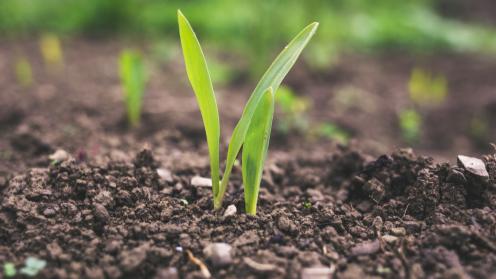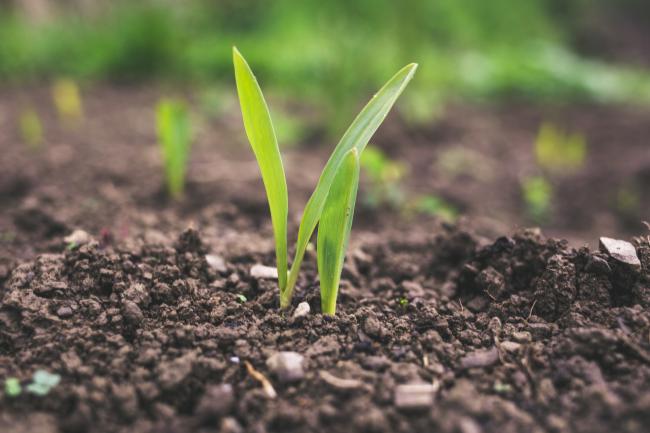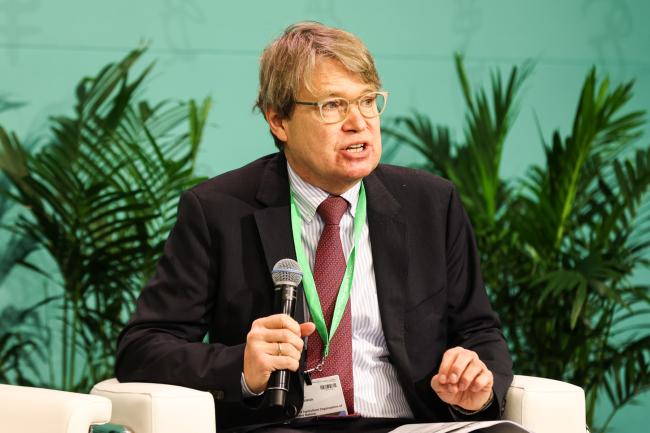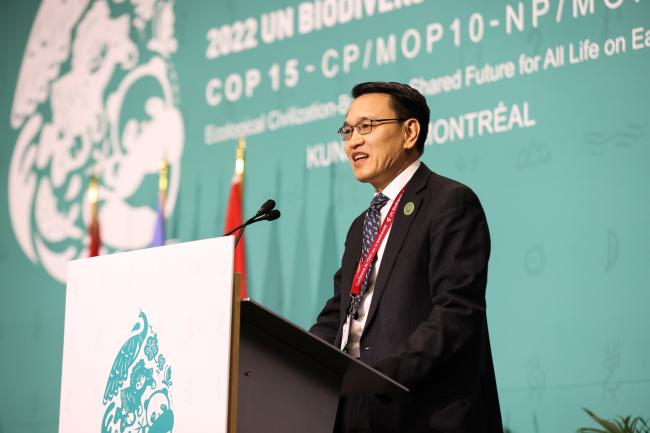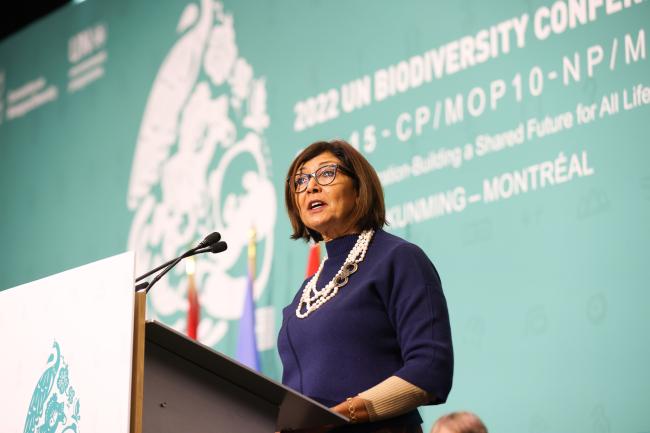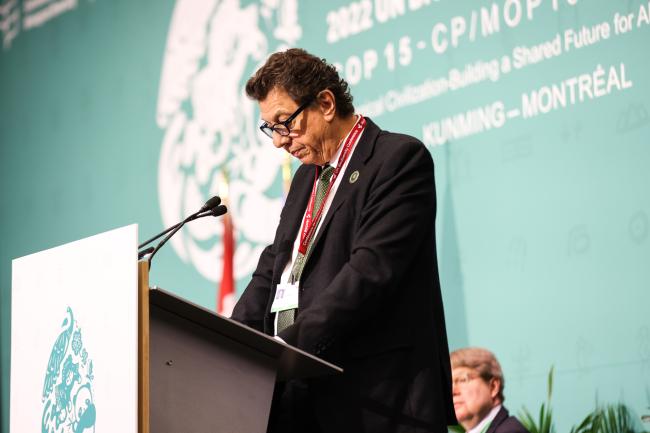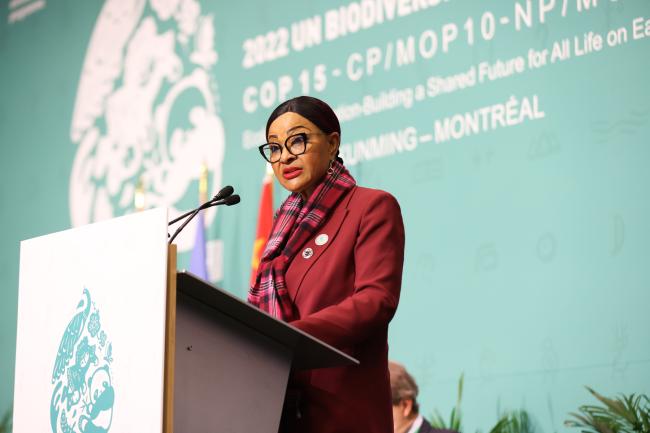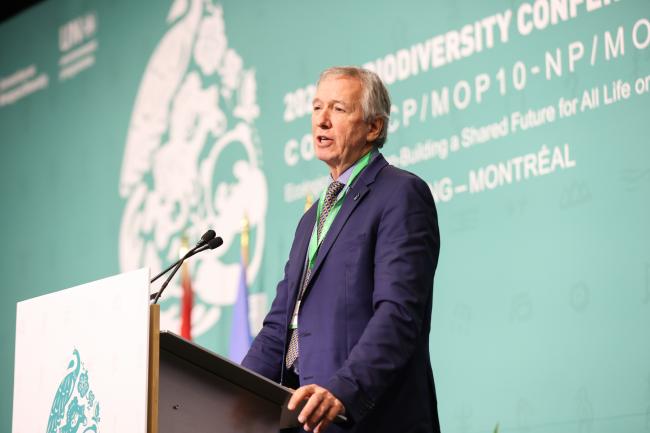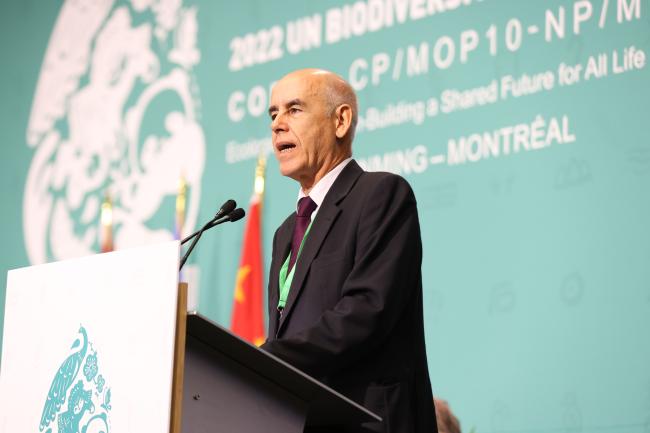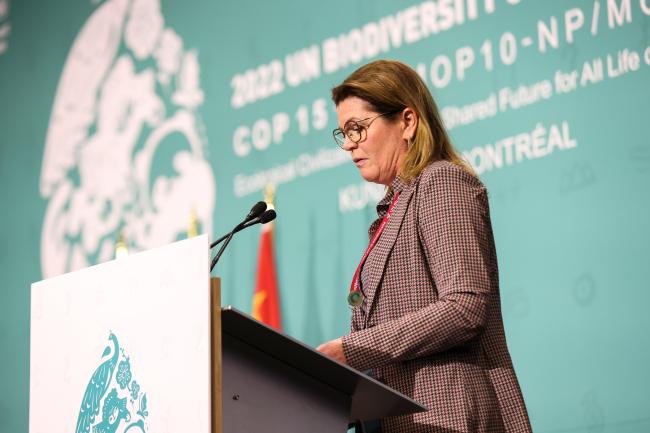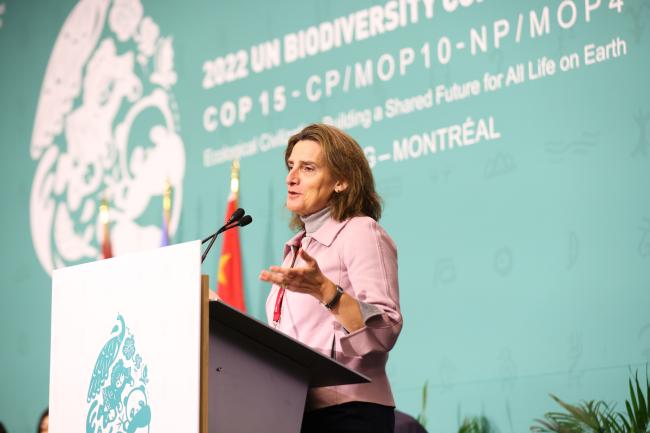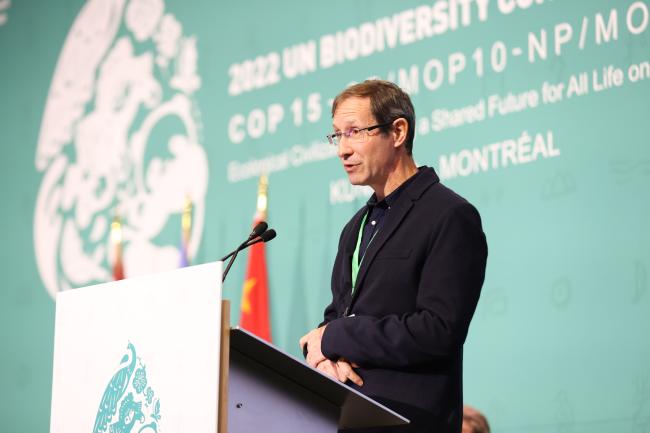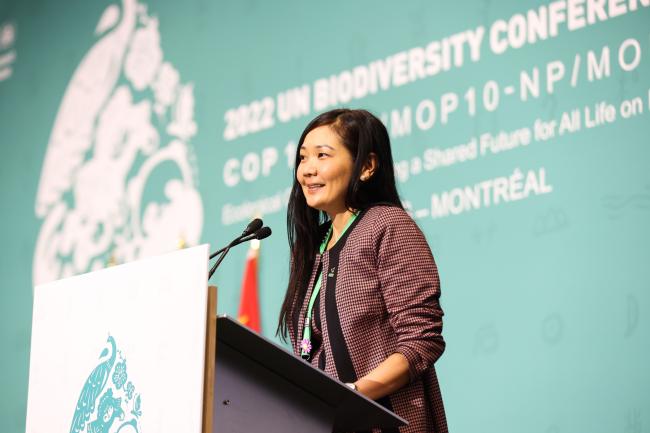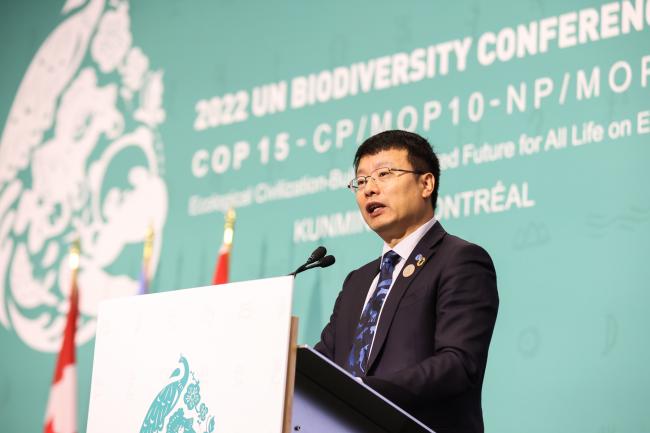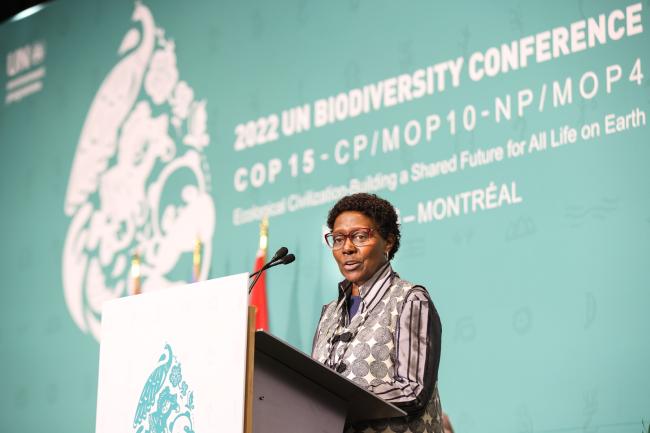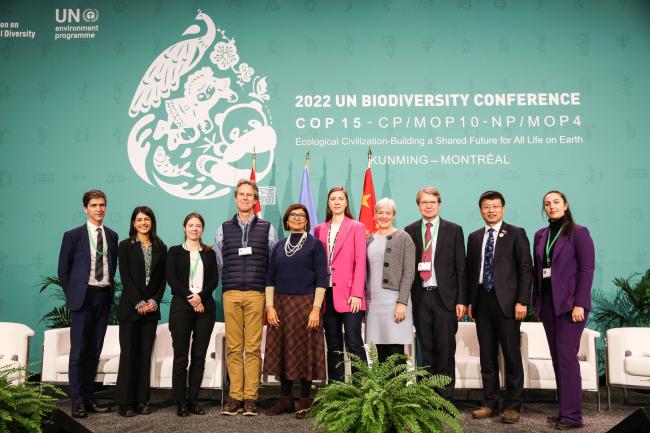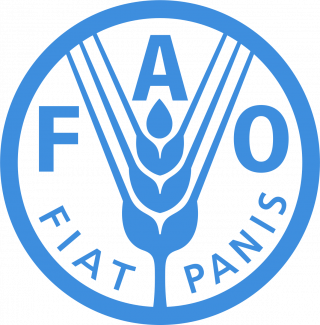About
Soil biodiversity loss remains one of the main global threats to food security in many regions of the world and is likely greater than estimated due to the lack of data on this issue.
Despite the substantial progress made in spreading knowledge about soil biodiversity and its functions, only around 1% of soil organisms have been identified so far. Moreover, soil biodiversity loss remains one of the main global threats to food security in many regions of the world and is likely greater than estimated due to the lack of data on this issue. This event, organized by the Food and Agriculture Organization of the UN (FAO) and the government of China, convened on the margins of the 2022 UN Biodiversity Conference to launch the Global Soil Biodiversity Observatory (GLOSOB), which aims to forecast the status of soil biodiversity and soil health.
Dan Leskien, FAO, moderated the event. Zhao Yingmin, Vice Minister of Ecology and Environment, China, called GLOSOB’s launch timely for contributing to implementation of post-2020 global biodiversity framework (GBF). He highlighted national measures to address soil biodiversity, including a national soil census being completed in 2025. He also noted that China is phasing out highly polluting pesticides and harsh fertilizers to protect soil biodiversity and maintain soil health, pointing to pilot projects on organic agriculture being undertaken in various provinces.
Maria Helena Semedo, Deputy Director-General, FAO, called on humanity to conserve and sustain remaining species, stressing consideration of the biodiversity in the soil, “that we do not see.” She linked the GLOSOB to achievement of the GBF, reiterating FAO’s commitment to support the achievement by countries of healthy soils and healthy biodiversity.
Franz Tattenbach, Minister of Environment and Energy, Costa Rica, underlined the role of the Global Soil Partnership in supporting food security and addressing biodiversity loss. Welcoming the GLOSOB, he stressed that soil is the final frontier in combatting climate change, and outlined the country’s sustainable land management plans as they relate to soil biodiversity.
Josefa Leonel Correia Sacko, Commissioner for Agriculture, Rural Development, Blue Economy and Sustainable Environment, African Union (AU), shared that the AU is convening a summit on fertilizer and soil health in 2023 in Senegal. She pointed to various measures under the AU to address soil health, including the AU Green Recovery Action Plan and the AU Climate Change and Resilient Development Strategy and Action Plan (2022-2032).
André Lamontagne, Minister of Agriculture, Fisheries and Food, Québec, shared that the government of Québec is committed to sustainable investment in agriculture to achieve soil health targets. He cited a Québec-FAO project on sustainable agriculture in Senegal and Haiti.
Humberto Delgado Rosa, European Commission, noted the world is slowly realizing that “we cannot make soil, but we can wear it out, compromising our own food security.” He welcomed the GLOSOB, underlining that the key to solutions on challenges facing humanity is information. He noted Europe is “not immune” to soil degradation, drawing attention to a proposed EU soil health law which aims to accord soil the same level of protection as water, air, or the marine environment.
Teresa Ribera Rodríguez, Minister for the Ecological Transition, Spain, noted that “soil is the elephant in the room” in the biodiversity talks and underlined that the loss of soil biodiversity is an existential threat to humanity, underpinning many nature-based solutions. Christianne van der Wal, Minister for Nature and Nitrogen Policy, the Netherlands, underlined that the time has come to change how we produce our food, calling for a common system of sustainable agriculture.
George Brown, on behalf of members of the International Network on Soil Biodiversity (NETSOB), gave a keynote presentation. He explained that soil is a non-renewable natural resource providing essential ecosystem services that allow life on Earth, lamenting that one-third of the world’s soils are degraded. He emphasized that soil degradation affects the delivery of key soil services such as climate and flood regulation, the discovery of important pharmaceuticals, and the habitat of a vast underground universe of soil organisms.
Presenting the Plan of Action of the International Initiative for the Conservation and Sustainable Use of Soil Biodiversity, Monica Kobayashi, CBD Secretariat, noted it includes coherent policy actions on: mainstreaming soil biodiversity; maintaining soil health; capacity building, knowledge transfer, and awareness; monitoring and reporting; and research and development.
Presenting the GLOSOB, Lifeng Li, FAO, outlined the mission of the GLOSOB to serve as the observatory providing global soil biodiversity data and information for guiding evidence-based decision making. He explained that under the GLOSOB countries will be responsible for measuring, monitoring, and sharing biodiversity information on hotspots in line with NETSOB’s harmonized protocols and country capacities.
Closing the session, Elizabeth Maruma Mrema, Executive Secretary, CBD, underscored the importance of smallholder farmers as custodians of biodiversity, and pointed to the Plan of Action to be adopted at COP 15 as complementary to GBF implementation. She called for raising awareness on the GLOSOB, underscoring that a nation that destroys its soil, destroys itself.
Organizers: FAO and the Government of China
Contact: Suzanne Redfern, FAO Suzanne.Redfern@fao.org
For more information: https://www.globalsoilbiodiversity.org
Written and edited by Tallash Kantai, Vijay Kolinjivadi, PhD, and Deborah Davenport, PhD.
All ENB photos are free to use with attribution. For this event, please use: Photo by IISD/ENB | Natalia Mroz
To receive free coverage of global environmental events delivered to your inbox, subscribe to the ENB Update newsletter.
